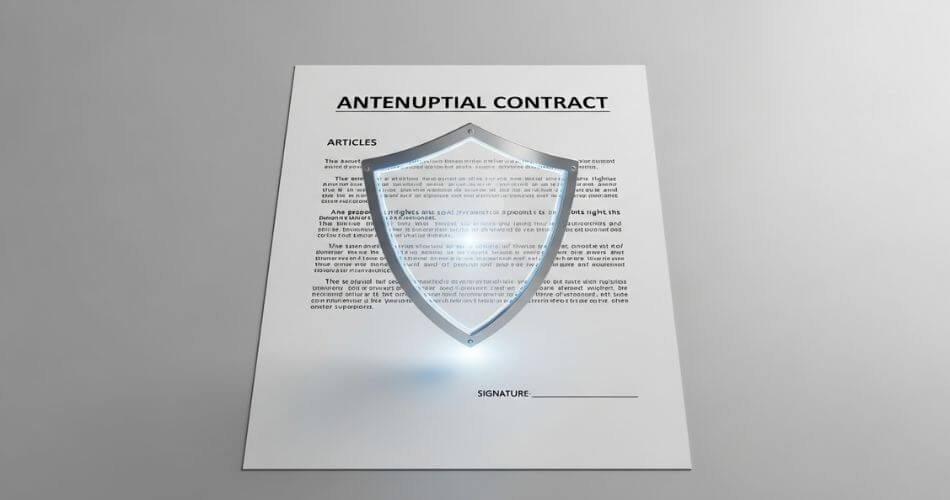The South African divorce law changes and property
The New Divorce Law & Your Property: A Homeowner's Guide
How the 2025 law overturns old contracts, and the 3 proactive steps you must take to protect your assets.

A significant shift is coming to the landscape of South African divorce law changes and property rights.
The General Laws Amendment Bill, expected in 2025, is set to fundamentally alter how assets are divided upon divorce for many couples.
This change is not a minor adjustment; it is a direct response to a Constitutional Court ruling that found the existing system could be unjust, particularly for spouses who sacrificed careers for their families.
For homeowners and property investors, this means that the old certainties are gone.
An Antenuptial Contract (ANC) that was once considered an ironclad shield may now be subject to a judge’s discretion, making proactive and intelligent estate planning more important than ever.
The Legal Earthquake: Why Your Marriage Contract is No Longer Absolute

For decades, South African couples had three clear marital property regimes. The default was ‘in community of property,’ where all assets and debts were shared.
The alternative was a marriage out of community of property without accrual, where each spouse’s estate remained entirely separate.
The third option was a marriage with accrual, a middle ground where assets accumulated during the marriage were shared. The system was predictable.
However, the Constitutional Court identified a deep flaw within the complete separation model.
The Constitutional Court’s ruling on fairness. In the landmark 2023 cases of EB v ER and KG v Minister of Home Affairs, the court declared that a key part of the Divorce Act was unconstitutional.
It found that the law unfairly discriminated against spouses, often women, married without accrual after 1 November 1984.
The court recognized that one spouse frequently makes significant non-financial contributions, such as raising children and managing the household, which enables the other spouse to build a large asset base.
Under the old law, the non-earning or lower-earning spouse could be left with nothing after decades of contribution, a situation the court deemed unjust.
The new law aims to correct this by giving judges the discretionary power to order a fair redistribution of assets, even if a contract states complete separation.
This judicial discretion is the earthquake that cracks the foundation of old agreements, meaning your assets are not as insulated as you might believe.
The era of relying on a simple, boilerplate contract is over; a new standard of fairness is being established.
The First Line of Defense: Modernizing Your Antenuptial Contract

With the court now empowered to look beyond the letter of an old contract, the Antenuptial Contract (ANC) must evolve.
It can no longer be a simple document of exclusion; it must become a sophisticated tool for articulating fairness and intent from the outset.
This is the first and most direct step in adapting to the new legal environment. Many people ask how to protect assets from divorce in South Africa, and a modernized ANC is the starting point.
Strategic clauses for a new era. A modern ANC must be drafted with the court’s new discretionary power in mind.
While you can still exclude the accrual system, the contract should be detailed and demonstrate a fair arrangement.
Some of the recommended antenuptial contract clauses South Africa family law attorneys now suggest include specific provisions for spousal maintenance, which can be waived or defined under certain conditions to prevent future disputes.
Another important clause involves explicitly waiving or defining claims against each other’s pension interests, a common point of contention in divorces.
It is also wise to include clauses that clearly list specific assets to be excluded from any potential redistribution claim, providing evidence that both parties agreed on their status from the beginning.
Attempting to update an existing ANC after marriage is exceptionally difficult and requires a costly High Court application, a process that is rarely successful.
Therefore, getting the contract right before marriage is absolutely essential for asset protection.
The Fortress: Using Trusts for Advanced Asset Protection

For individuals with significant assets, such as a family home or an investment property portfolio, a well-structured trust has long been a component of effective estate planning.
However, the new legal climate requires a deeper understanding of how these structures function under judicial scrutiny during a divorce.
A trust is not an automatic shield; if set up or managed improperly, a court can look straight through it.
Building a “divorce-resistant” trust. A court can disregard a trust in a divorce settlement if it is deemed a “sham” or the “alter ego” of one of the spouses.
This often happens when the founder of the trust continues to treat the assets as their own, making all decisions without genuine consultation with other trustees.
The key to a resilient inter vivos trust divorce strategy is the genuine surrender of control. The most important structural element is the appointment of an independent trustee, a professional who is not a family member and who can exercise objective discretion.
The trust deed must be meticulously drafted, and all actions taken by the trustees must be formally documented to prove the trust is a separate entity, not a personal bank account.
Moving a primary residence into a trust has serious tax implications, including Transfer Duty and Capital Gains Tax (CGT), which is levied at a higher effective rate for trusts than for individuals.
This is a complex and costly maneuver that requires specialist legal and financial advice, but for high-value assets, it can provide a formidable layer of protection that an ANC alone cannot offer.
The Final Layer: Aligning Your Financial Plan for Fairness

Legal structures like ANCs and trusts are powerful, but they form only part of a complete strategy. True asset protection and marital fairness are also achieved through intelligent and transparent financial planning.
This final layer involves creating practical financial arrangements that protect both spouses, especially in scenarios where one partner has a lower income or is a non-earning spouse. This is a vital part of estate planning for married couples South Africa.
Three strategies for financial partnership. The first strategy is to establish dedicated investment accounts or policies in the non-earning spouse’s name.
This directly builds an asset base for the spouse who may have sacrificed career growth, creating financial independence and demonstrating a commitment to shared prosperity.
It provides a tangible acknowledgment of their non-financial contributions to the marriage. The second strategy involves the strategic use of life and disability insurance.
A life insurance policy naming the other spouse as the beneficiary can provide security and replace lost income in the event of death, ensuring the surviving partner is not left financially vulnerable. Disability cover for the primary earner serves a similar purpose, protecting the family’s financial stability.
Finally, while maintaining separate bank accounts is common in marriages without accrual, establishing a joint account for shared household expenses promotes transparency and partnership.
This approach allows for individual financial autonomy while fostering open communication and a shared sense of responsibility for the family’s financial health, creating a partnership that is both legally sound and financially equitable.
Conclusion: Proactive Planning in a New Legal World

The legal ground beneath homeowners is shifting. The upcoming South African divorce law changes and property regulations mean that passivity is a risk you cannot afford to take.
A decades-old marriage contract, once a solid defense, may now be insufficient against a court mandated to impose fairness. The new reality demands a proactive, multi-layered strategy.
By modernizing your Antenuptial Contract with specific and fair clauses, considering the robust protection of a properly structured trust, and aligning your day-to-day financial planning for mutual benefit, you move from a position of uncertainty to one of strength.
Do not wait for a crisis to reveal the weaknesses in your planning. The time to consult with your legal and financial advisors to secure your assets and ensure fairness for your family is now.
Free Research Resource
This article summarises the practical implications for homeowners. For readers who want the complete background, we’ve compiled a 10-page research paper with references to the Constitutional Court ruling and supporting legal sources.
Download your free copy hereAbout the Author
Andre Swart is a respected leader in Brackenfell real estate with over 20 years of results-driven experience. Through his platform, “Andre Swart Inspires,” he moves beyond simple property sales to share the proven mindset, strategies, and habits that build lasting success.
Grounded in integrity, Andre’s mission is to mentor the next generation of top agents and provide homeowners with the trusted guidance they deserve.
